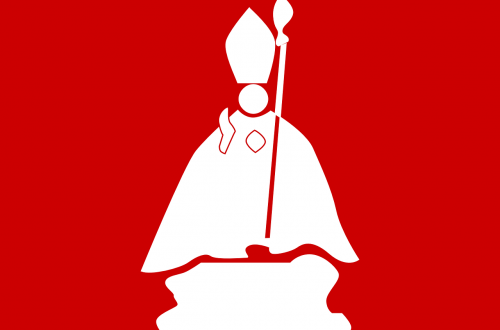 If you haven’t yet Ross Douthat’s column in today’s New York Times, then you need to. He describes better than anyone else the fundamental constitutional issue at stake in the recent controversy regarding Chick-fil-a. He rightly recognizes that the issue is much bigger than whether or not Chick-fil-a gets to open stores in Boston and Chicago. At bottom, we are talking about the meaning of religious liberty as it is spelled out in the Constitution of the United States. He writes:
If you haven’t yet Ross Douthat’s column in today’s New York Times, then you need to. He describes better than anyone else the fundamental constitutional issue at stake in the recent controversy regarding Chick-fil-a. He rightly recognizes that the issue is much bigger than whether or not Chick-fil-a gets to open stores in Boston and Chicago. At bottom, we are talking about the meaning of religious liberty as it is spelled out in the Constitution of the United States. He writes:
The Bill of Rights guarantees Americans something that its authors called “the free exercise” of religion. It’s a significant choice of words, because it suggests a recognition that religious faith cannot be reduced to a purely private or individual affair. Most religious communities conceive of themselves as peoples or families, and the requirements of most faiths extend well beyond attendance at a sabbath service — encompassing charity and activism, education and missionary efforts, and other “exercises” that any guarantee of religious freedom must protect.
Secularists increasingly seek to limit religious liberty to what happens within the four walls of the church or within the privacy of one’s home. But the Constitution actually guarantees more than that. It guarantees Americans the right to practice their faith in the public space 24 hours a day, 7 days a week, 365 days of the year. This freedom cannot be reduced to the way in which services are conducted for one hour a week at your local church. It’s bigger than that.
From mayors trying to ban Chick-fil-a from their cities to federal mandates forcing religious hospitals to purchase insurance coverage for abortions, they all have one thing in common—the idea that freedom of religion only covers what religious people do in their own private worship. In this view, any public expression of one’s faith can be abridged by the government. This is the view that is on the rise right now among secularists, and it is patently unconstitutional.
I want to add one more little wrinkle to this that I don’t think Douthat mentioned vis a vis Obamacare’s abortion mandate. There are businesses across the country—like Chick-fil-a—that are owned by Christians who want to run their businesses according to the norms of their faith. Many of them do not want to be forced to purchase insurance coverage for abortions. That means that the exemption from the Obamacare abortion mandate must not only apply to churches and other religious entities (like Catholic hospitals, universities, etc.). It must also apply to any religious business owner who wishes to run his business according to the dictates of his faith. In other words, the exemption must be wider than almost anyone is contemplating right now if it is to uphold religious liberty.
On that note, two days ago a federal judge issued a ruling that appears to have flown completely under the radar. The Hill reports that a federal judge ruled that a Colorado-based company does not have to comply with the Obama administration’s birth-control mandate because of the employer’s religious beliefs. The business in question is not a religious entity. It’s an HVAC manufacturer. It’s simply that its owner has religious objections to the contraceptive mandate. The broad exemption this business has sued for is exactly what I’m talking about, and this could have wide-ranging implications for the mandate if it is upheld. Ezra Klein of The Washington Post has more here.




6 Comments
Jason Owens
Free exercise. . . That phrase is short, but so very huge.
David Thomas
The philosophical (and ultimately phenomenological) rub is that Secularism itself IS a religion. The idea that all religions in their purest form can “co-exist” (as those nifty bumberstickers constantly encourage us to do) is a pipe dream: Religions are more often than not in conflict with each other, at times directly and confrontationally at odds with each other.
In my mind, the United States’ idea that it can be a neutral state in regard to religion never really worked: It clearly bent toward the Judeo-Christian worldview even if it was deeply grounded in Enlightenment rationalism. Various Founding Fathers state this more or less directly. In other words, the “free exercise of religion” was written under the assumption that that religion /would be/ overwhelmingly Christian. Neutrality was there in political form, not ideological essence.
But now you have Secularism, which acts /very much/ like a religion, not to mention a host of other religions in the mix. Secularism is demanding that IT be given the floor, the “free exercise,” even as the Judeo-Christian view has had it for so many years. The conflict is that one man’s “free exercise” of religion becomes a limitation to another man’s “free exercise” of HIS religion. Or take Islam. Christianity is a faith grounded in death to self in emulation of its Founder for the sake of a Kingdom not of this world. Islam is fundamentally imperial and war-making in emulation of /its/ founder–a system /very much/ of this world. Islam is taking advantage of the loopholes in the openness our society has (thanks to our Consitution) and seeks to implement Sharia in direct violation /of/ the Constitution. It would be extraordinarily naive to say Islam is not gaining gorund in the U.S.
Does the U.S. Constitution have the DNA to survive or resolve this conundrum? Various framers of it basically say “no.”
We have interesting times ahead…
JamesStanton
David, could you provide some examples of how “Islam” is seeking to implement Sharia law in the US? Islam is gaining ground in the US, to be sure, just as is Mormonism. This does not equate to Sharia law which there is fairly close to 0% percent support for among Americans, probably even the Muslim ones.
http://www.sltrib.com/sltrib/news/54026798-78/lds-religious-church-largest.html.csp
David Thomas
Sure:
http://shariahinamericancourts.com/
I was referring, as this website explains, that Sharia has been factored into decisions and actually weighed instead of being (as it should have been) laughed out of the courts forthwith. Sharia is /ontologically/ very different than (say) a conflict between a denomination and a local congregation as has happened of late within the Anglican community, for example. But you have to have /theology/ to understand that truth; the Constitution is ill-equipped to deal with it.
At the end of the day, religion and faith proves more powerful than Enlightenment thought. That’s my point. Separation of Church and State is a great idea as long as the Church is given preference. But when the State is given preference /as a religion/ (as it is in Islam or militant Secularism), that brings serious problems…problems we are facing now.
Revelation paints a dire situation, the backdrop of which is worship of the State (in original context, the Roman imperial cult). What will the modern version of the imperial cult be?
donsands
“Secularists increasingly seek to limit religious liberty to what happens within the four walls of the church or within the privacy of one’s home.”
Yep. They want to shut us up permanently, and so we need to pray, and walk by faith and proclaim our freedom with bold meekness.
Pingback: